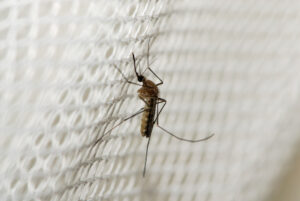Currently, half of the world’s population is at risk for malaria. Although malaria was endemic across the southern region of the US before WWII, the disease was eliminated in the early 1950s. However, multiple species of competent Anopheles mosquitoes still remain with the potential for local transmission. In 2023, 2200 cases of imported malaria were reported in the US, and 10 patients in four states (Florida, Texas, Arkansas, and Maryland) acquired malaria from local transmission as they had not traveled outside the country in over two years nor received a blood transfusion. Genetic analysis of the Plasmodium parasites found that all seven patients in Florida were infected with a similar P. vivax strain from Central or South America, but the other three patients had unique Plasmodium strains. The two patients in Texas and Arkansas had two other genetically distinct P. vivax strains from Central or South America, but the patient in Maryland had a strain of P. falciparum from Africa. All four states captured Anopheles mosquitoes from nearby breeding sites, and P. vivax DNA was detected in three mosquitoes from two sites in Florida. Timely mosquito control and a rapid public health response kept the outbreaks under control, and no other locally acquired cases were reported in 2023. The medical community must remain vigilant to prevent malaria outbreaks in the US and ensure transfusion-transmission of malaria does not occur.
Reference:

